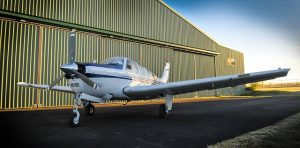
Not all greases are made equally. Some of them are intended specifically for airplanes and other types of aircraft. Known as aviation grease, it can withstand the elements while offering a high level of protection against friction and corrosion.
What Is Aviation Grease?
Aviation grease is a type of semisolid lubricant that’s designed for use with aircraft. When applied, it will form of a protective barrier over the surface or part with which it’s used.
There’s general-purpose grease, and there’s aviation grease. They both consist of a semisolid lubricant, but only the latter is designed for use with aircraft. Airplanes and other types of aircraft are exposed to the elements during flight. While the rain, wind and sun may degrade general-purpose grease, aviation grease will hold up under these elements.
Common Applications for Aviation Grease
What can you use aviation grease for exactly? One of the most common applications for aviation grease is bearing lubrication. Bearings are parts that allow or assist in rotary movement. There are many different types of bearings used in aircraft, such as roller bearings and plain bearings. To protect them from friction-related damage, you may want to use aviation grease.
As a lubricant, aviation grease will reduce the friction of a bearing’s moving parts. It will allow the bearing’s parts to move more smoothly, thereby minimizing the risk of friction-related damage.
In addition to protecting moving parts from friction-related damage, you can use aviation grease to protect against corrosion. Corrosion can occur when metal parts begin to oxidize. Exposure to oxygen may trigger a chemical reaction that breaks down the metal parts. Aviation grease, however, will cover the metal parts so that they are no longer directly exposed to oxygen in the air or water.
What to Look for When Choosing Aviation Grease
You should make the sure the aviation grease is labeled for use with aircraft. Don’t just purchase general-purpose grease. Instead, choose a product labeled as “aviation grease” or “aircraft grease.”
Synthetic aviation grease typically outperforms natural aviation grease. Aviation grease is considered synthetic if it’s made of synthetic compounds. It tends to last longer and offers greater protection against friction and corrosion than natural aviation grease.
Don’t forget to check the volume when choosing aviation grease. In other words, how much grease does it actually contain? A little aviation grease goes a long way at protecting against friction and corrosion, but some products contain more grease than others.



